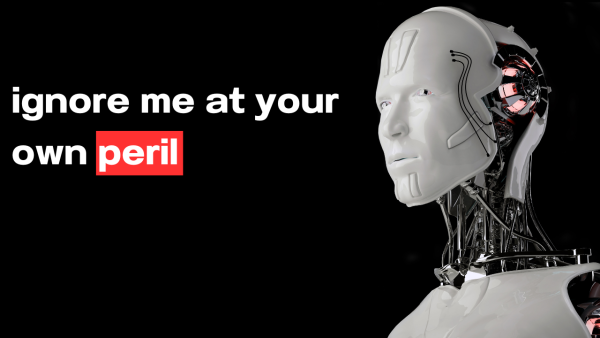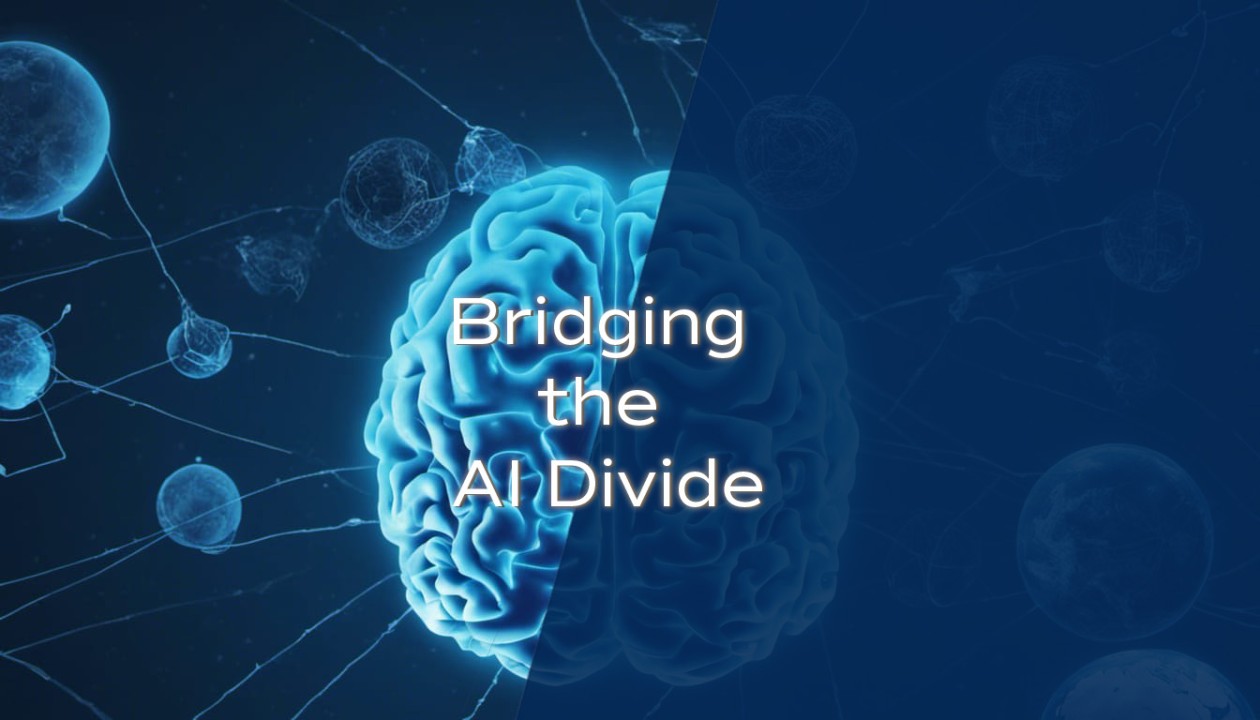* No AI Divide
This article is by Ian Hocking, a software engineer and former cognitive psychologist living in Tregony

Artificial intelligence, or AI, is technology that aims to mimic human intelligence and behaviour. So-called Large Language Models have been produced by companies like OpenAI, whose model GPT4 [https://chat.openai.com] is considered one of the best. In fact, Elon Musk called it ‘scary good’.
Like the Internet in the 1990s, AI is a strange new thing that will have benefits and pitfalls, but, like the Internet, it is here to stay.
What makes this new AI technology different from, say, a revolutionary new car engine? The car engine might be faster, but it will never grow little arms and improve its own performance. An AI, by contrast, is an imitation of the thing that produced it–the human mind. It wants to improve itself. Because it exists only as data, the improvement has been and will continue to be fast. Most experts agree that we are somewhere — nobody knows where — on an AI performance curve that will soon reach and pass human performance on tasks like writing, designing, programming, and creativity. Many things, in other words, that have real economic impact.
What does this mean for Cornwall and the Roseland? Cornwall is one of the poorest areas in the UK due to low wages, high property prices, and seasonal employment. At least one report indicates that Cornwall is recovering more slowly than other parts of the UK from the COVID epidemic. AI can help. Though it is difficult to quantify how much, at least one study, published in the journal Science, showed that use of ChatGPT in business-related tasks improves performance by 40% and output quality by 18%. Because Cornwall is relatively deprived, it may well be slower to adopt these new technologies, but that need not happen. Whoever you are, and whatever you do, AI can probably give you a boost.
How does AI work at the point of use? Typically, a user signs in to an AI via a web browser and asks for help in plain English, usually as a simple question. The AI will reply in plain English. If the user needs more help, she asks for it, and the AI replies once more. If this sounds like a conversation, that’s because, behaviourally speaking, it is. Most AIs can be treated as tireless, eager to please, naïve interns or junior colleagues. An AI cannot, today, be trusted to be 100% infallible, but then neither can I–and neither can you. From a business perspective, AI usage can help to resolve customer inquiries, produce routine paperwork like reports, summarise complex documents, write computer programs, and many more things.
But AI isn’t just for businesses. Hi9 [https://www.hi9.io/], a Cornwall-based company led by Wo King, has a suite of AI-powered tools designed to help with benefit estimations, job searches, and keeping their data private. AIs are also creative. They can write you an apple crumble recipe in the style of Hemingway, or suggest non-toxic ways to clean your guttering, all in the same conversation. See more examples here: [https://builtin.com/artificial-intelligence/chatgpt-examples]
 I would encourage you to experience AI first hand. You can try chatting with the free version of ChatGPT at [https://openai.com]. For a more advanced conversational AI, check out Claude from Anthropic [https://www.anthropic.com]. Google and Microsoft also have AI chatbots–Google’s is called Bard [https://bard.google.com] and Microsoft’s is integrated into its new Bing search [https://www.bing.com]. Another AI to check out is Pi [https://pi.ai], which provides a listening ear. Interacting with these different AIs can help you understand their capabilities and potential benefits. Be careful about sharing personal information. Don’t blindly accept the AI’s answers to factual questions.
I would encourage you to experience AI first hand. You can try chatting with the free version of ChatGPT at [https://openai.com]. For a more advanced conversational AI, check out Claude from Anthropic [https://www.anthropic.com]. Google and Microsoft also have AI chatbots–Google’s is called Bard [https://bard.google.com] and Microsoft’s is integrated into its new Bing search [https://www.bing.com]. Another AI to check out is Pi [https://pi.ai], which provides a listening ear. Interacting with these different AIs can help you understand their capabilities and potential benefits. Be careful about sharing personal information. Don’t blindly accept the AI’s answers to factual questions.
Much is said about the digital divide, which, until now, has simply focused on getting people online. We need to make sure that no AI divide develops, particularly in Cornwall.

